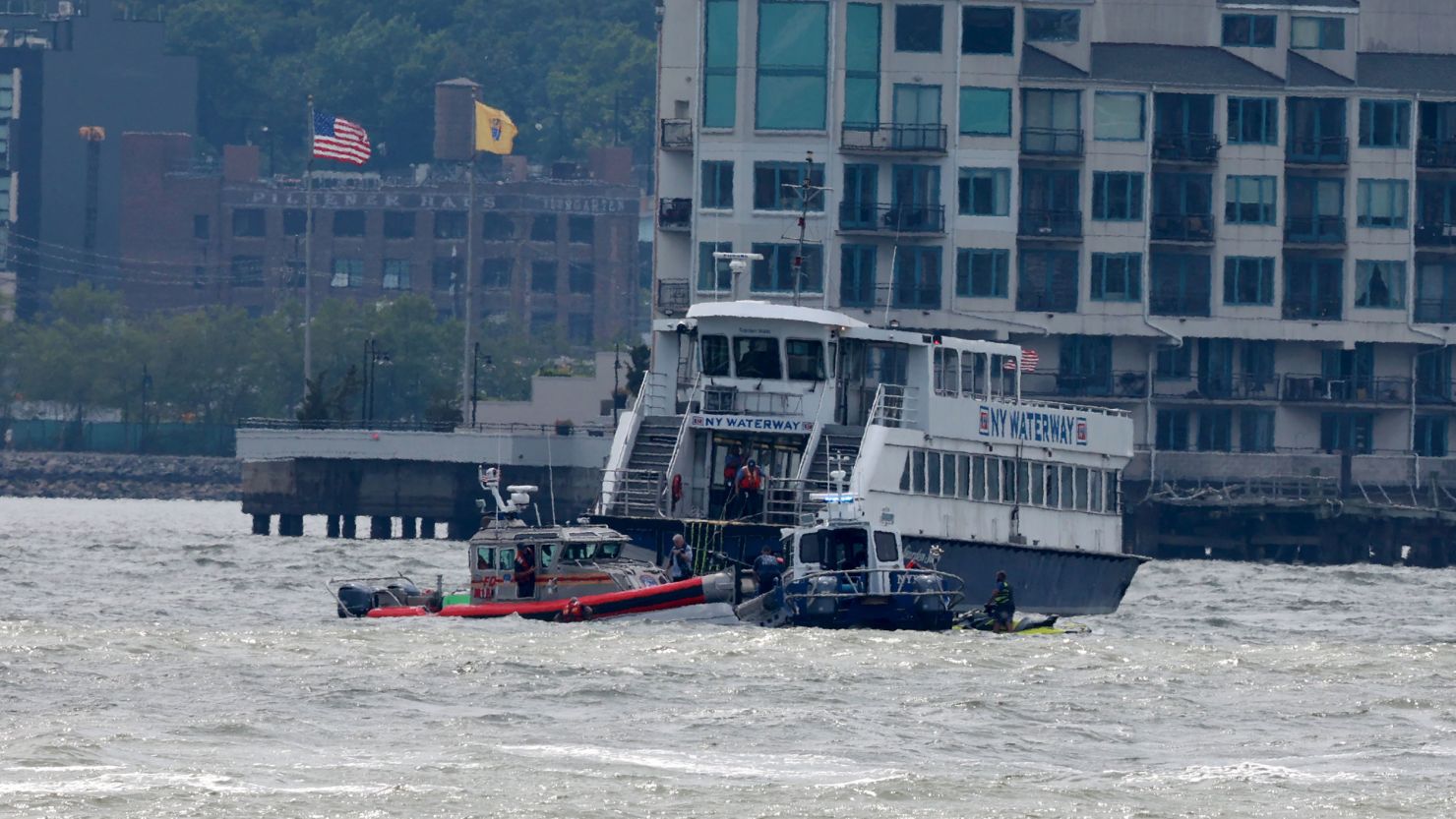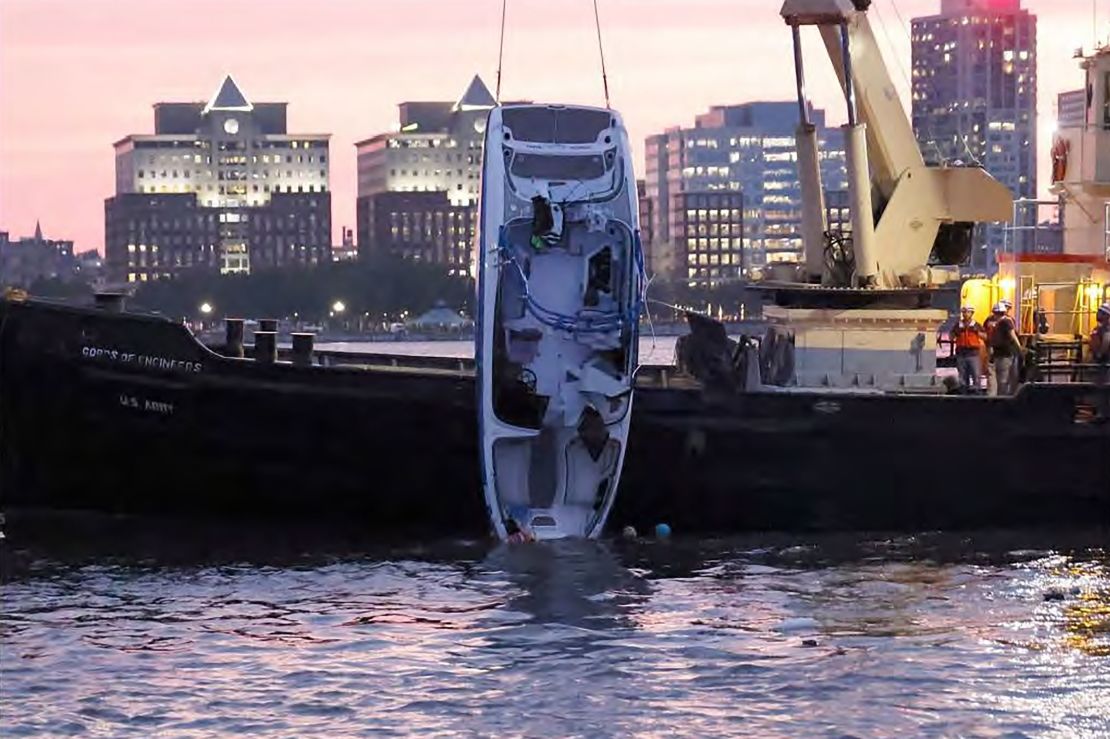New York Boat Accident: A Comprehensive Guide To Recent Developations And Safety Measures
Recent headlines have been dominated by the tragic events surrounding a new york boat accident, which has left authorities and maritime experts searching for answers. The incident, which occurred in the bustling waters of New York, has sparked widespread concern among boating enthusiasts and raised questions about safety protocols. As investigations continue, it is crucial to understand the circumstances surrounding the accident, its implications, and what steps are being taken to prevent future tragedies. This article delves deep into the details of the accident, offering insights into the factors that contributed to the event and exploring the measures being implemented to enhance boating safety in the region.
For those unfamiliar with the complexities of maritime safety, the new york boat accident serves as a poignant reminder of the importance of vigilance and adherence to regulations. Whether you are a seasoned boater or a newcomer to the world of watercraft, this article aims to equip you with the knowledge necessary to navigate the waters safely. We will examine the incident from multiple angles, including the role of human error, environmental factors, and the regulatory framework governing maritime activities in New York.
This exploration of the new york boat accident will also shed light on the broader implications for the boating community. By understanding the lessons learned from this tragedy, we can work towards fostering a safer environment for all who venture onto the water. Join us as we dissect the details and uncover the steps being taken to ensure that such incidents remain rare occurrences.
Read also:What Really Happened When Elvis Presley Died A Deep Dive Into The Kings Final Days
What Caused the New York Boat Accident?
Investigations into the new york boat accident have revealed a combination of factors that likely contributed to the tragedy. Initial reports suggest that poor visibility due to foggy conditions played a significant role, obscuring the vision of the boat's operator and making it difficult to navigate safely. Additionally, the speed at which the vessel was traveling may have exacerbated the situation, reducing the operator's ability to react in time to avoid a collision.
Experts have also pointed to the importance of proper training and certification for boat operators, emphasizing that understanding the intricacies of maritime navigation is essential for preventing accidents. As the investigation progresses, authorities are examining whether the operator was adequately prepared to handle the challenging conditions present during the incident.
How Can Boaters Avoid Similar Incidents?
To prevent future new york boat accidents, it is imperative for boaters to prioritize safety and adhere to established guidelines. Below are some key recommendations:
- Always check weather conditions before setting out on the water.
- Ensure that your vessel is equipped with the necessary safety gear, including life jackets and communication devices.
- Maintain a safe speed and be mindful of your surroundings at all times.
- Participate in boating safety courses to enhance your knowledge and skills.
Is the Regulatory Framework Adequate?
Questions have arisen regarding the adequacy of the regulatory framework governing maritime activities in New York. While existing regulations provide a foundation for ensuring safety, critics argue that more stringent measures are needed to address the evolving challenges faced by boaters. This includes updating guidelines to account for advancements in technology and changes in environmental conditions.
Advocates for reform emphasize the importance of regular reviews and updates to the regulatory framework, ensuring that it remains relevant and effective in promoting safety. By fostering collaboration between regulatory bodies, industry stakeholders, and the boating community, it is possible to create a more robust system that minimizes the risk of accidents.
Can Technology Play a Role in Preventing New York Boat Accidents?
Emerging technologies offer promising solutions for enhancing boating safety and reducing the likelihood of accidents. Innovations such as advanced radar systems, GPS navigation tools, and automated collision avoidance systems have the potential to significantly improve the safety of watercraft operations. By integrating these technologies into their vessels, boaters can gain greater situational awareness and respond more effectively to potential hazards.
Read also:Anais Amore Unveiling The Enigma Behind The Rising Star
However, the adoption of such technologies is not without challenges. Cost considerations and the need for proper training to utilize these systems effectively are factors that must be addressed to ensure widespread implementation. As technology continues to evolve, it is essential for the boating community to embrace these advancements and incorporate them into their safety protocols.
What Are the Legal Implications of the New York Boat Accident?
The new york boat accident has sparked discussions about the legal responsibilities of boat operators and the potential consequences of violating safety regulations. Under current laws, operators found to be at fault in accidents may face penalties ranging from fines to criminal charges, depending on the severity of the incident and the extent of the damage caused.
Victims of boating accidents may also pursue legal action to seek compensation for injuries, property damage, and other losses. This highlights the importance of understanding one's legal rights and obligations when engaging in maritime activities. Consulting with a knowledgeable attorney specializing in maritime law can provide valuable guidance for those affected by such incidents.
Who Is Responsible for Ensuring Boating Safety?
The responsibility for ensuring boating safety lies with multiple parties, including boat operators, regulatory bodies, and the broader boating community. Operators must prioritize safety by adhering to regulations, maintaining their vessels properly, and exercising caution while on the water. Regulatory bodies play a crucial role in establishing and enforcing safety standards, while the boating community can contribute by promoting awareness and advocating for improved safety measures.
By fostering a culture of safety and accountability, all stakeholders can work together to minimize the risk of accidents and create a safer environment for everyone who enjoys the waters of New York.
What Steps Are Being Taken to Improve Safety Following the New York Boat Accident?
In response to the new york boat accident, authorities have initiated several measures aimed at enhancing safety and preventing similar incidents in the future. These include increased patrols and inspections, the implementation of mandatory safety courses for operators, and the development of educational campaigns to raise awareness about the importance of maritime safety.
Additionally, efforts are underway to improve communication and coordination between various agencies involved in maritime safety. By fostering collaboration and sharing best practices, these initiatives aim to create a more comprehensive and effective approach to ensuring the safety of all who venture onto the waters of New York.
What Lessons Can Be Learned from the New York Boat Accident?
The new york boat accident serves as a stark reminder of the potential dangers associated with maritime activities and the importance of prioritizing safety. By examining the factors that contributed to the incident and the measures being taken to address them, we can gain valuable insights into how to prevent future tragedies. This includes recognizing the role of environmental conditions, operator training, and regulatory frameworks in promoting safety.
Ultimately, the lessons learned from this incident underscore the need for vigilance, responsibility, and collaboration among all stakeholders in the boating community. By working together and embracing the latest advancements in technology and safety practices, we can create a safer environment for everyone who enjoys the waters of New York.
How Can the Boating Community Promote Safety Awareness?
Promoting safety awareness within the boating community is essential for reducing the risk of accidents and fostering a culture of responsibility. This can be achieved through various initiatives, including:
- Organizing workshops and seminars to educate boaters about safety practices and regulations.
- Encouraging peer-to-peer learning and sharing of experiences to highlight the importance of safety.
- Collaborating with local authorities and organizations to develop comprehensive safety programs.
Is There a Need for Greater Public Awareness About New York Boat Accidents?
Raising public awareness about the risks associated with boating and the importance of safety measures is crucial for preventing accidents. By educating the general public about the potential dangers and the steps they can take to stay safe, we can reduce the likelihood of future tragedies. This includes disseminating information through various channels, such as social media, community events, and educational campaigns.
As the boating community continues to grow, it is essential to ensure that everyone who ventures onto the water is equipped with the knowledge and skills necessary to navigate safely. By fostering a culture of awareness and responsibility, we can create a safer environment for all who enjoy the waters of New York.
Table of Contents
- What Caused the New York Boat Accident?
- How Can Boaters Avoid Similar Incidents?
- Is the Regulatory Framework Adequate?
- Can Technology Play a Role in Preventing New York Boat Accidents?
- What Are the Legal Implications of the New York Boat Accident?
- Who Is Responsible for Ensuring Boating Safety?
- What Steps Are Being Taken to Improve Safety Following the New York Boat Accident?
- What Lessons Can Be Learned from the New York Boat Accident?
- How Can the Boating Community Promote Safety Awareness?
- Is There a Need for Greater Public Awareness About New York Boat Accidents?


